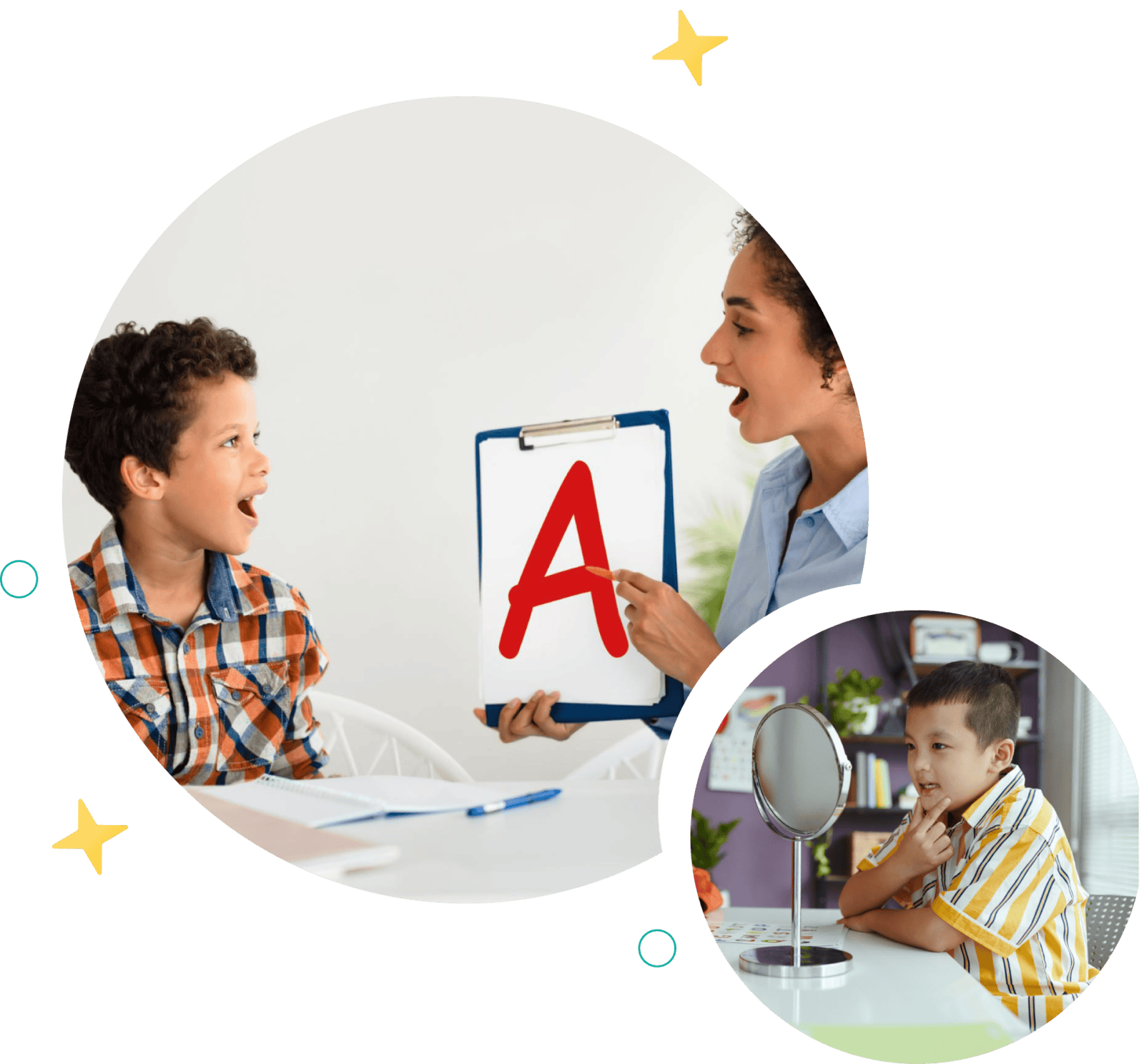
Speech Therapy Helps With
Speech And Language Challenges
Difficulty pronouncing sounds correctly, like substituting “w” for “r”
or omitting sounds in words.
Issues producing speech sounds clearly, affecting overall intelligibility.
- Struggles with forming sentences or using appropriate vocabulary.
- Trouble understanding spoken or written language.
Disruptions in speech flow, including repetitions or prolonged pauses.
Problems with pitch, volume, or quality of voice, such as hoarseness or breathiness.


Improving Communication and Daily Skills
Speech therapy supports individuals with social communication disorders by improving skills like understanding cues, eye contact, and conversation turns. It also addresses cognitive-communication disorders by enhancing memory, problem-solving, and executive functioning. Therapy helps those with hearing impairments improve speech and auditory processing, while for dysphagia, it focuses on safe swallowing techniques, especially for neurological conditions.





